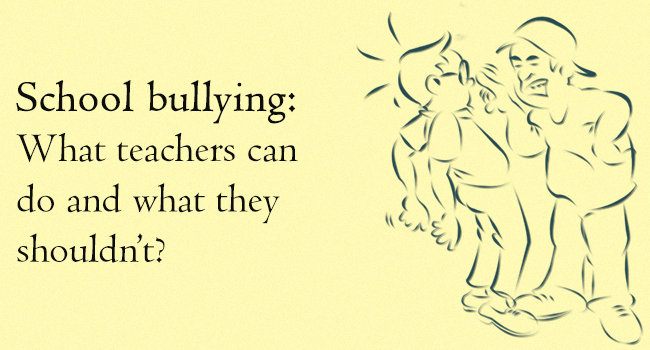Like wet cement which reflects anything that falls on it, children cannot always be blamed for the behaviour they showcase. School apps help students to learn better and parent portal helps parents to evaluate their children, but is that enough for our children? For that, execution has to be impeccable. Gifting our children the best environment for healthy mental and physical development is equally important.
Even inside the school, children are not as safe as we think. Bullying is one such problem that can affect children in the school. Under any circumstances, bullying cannot be justified. Approximately 32% of reported student bullying complaints are from schools.
It is of no doubt that bullying can affect the emotional stability of the victim. When it happens at school, it can negatively impact a child’s learning ability. More than one in five children is bullied regularly at school.
Stop before it starts, that’s the best way to deal with bullying. The possibilities of school staffs are numerous to stop the bullies. Teachers have the authority to mould the children for better.
Teachers can help prevent the bullies:
“Teachers affect eternity; no one can tell where their influence stops”- Henry Brooks Adams
Teachers can create a bully-free school zone. The authority of teachers is not limited to school syllabus, they can do a lot more for the school and the students.
What works?
Implement the best that works. Practice what you preach.
- When in doubt take action
According to research when teachers or adults ignore bullying it is a clear indication for the students that it’s OK to behave in that manner. Always take immediate precautions against bullying. Students must be aware that, no practice of bullying shall be tolerated.
- Treat them right
Always treat students with warmth and affection. Students should feel that teachers are always available to listen and help them. Most of the students might be in fear to expose their experience with the bullies, but giving them adequate courage can solve the problem.
- Peer Volunteers
Appointing special volunteers for anti-bullying squad can be helpful. The volunteers can report to the teachers about any bullying incident. The victim also attains courage with volunteers between them.
- Approaching the bullies
While the victim must be treated with extra care and support, bullies must not always be treated harshly. They should realize the intensity of the crime they have committed. Feeling guilty fetches better results.
- Spread goodness
Activities that encourage social conduct can be helpful. The prevention taken before bullying is far more effective than the punishment granted to the victims after the incident. A school wide focus to the problem can resolve it better.
- Monitoring the bullies
Bullies must be monitored and necessary action must be taken to prevent it as soon as possible. Contacting the parents of the bullies can be considered. The entire school must be warned that bullies are carefully monitored. No bullies will be ignored.
What doesn’t work?
It’s also essential to point out, what does not work in the prevention of bullying. Many preventive factors might sound effective but they are not.
- Enforcing Zero Tolerance Policy
Zero tolerance policies might result in less reporting of bullying incident. The policy regardless of accidental mistakes or any other circumstances, believes in punishing the guilty. The policy might not fetch the expected result. Punishment cannot eliminate the chance of future bullying.
- Conflict Resolution Methods
There is a great difference between the bully and the victim, mediation between the two is not an alternative. It can upset the victim more. Never encourage bullies by not resolving the issue.
- Dealing each bullying incident in isolation
Compared to a school wide approach dealing the incident in isolation has little effect. Each incident should be resolved without any delay as well. Enquiring the family background of the bullies can help but counselling them is much better.
Always remember:
“If kids come to us from strong, healthy functioning families, it makes our job easier. If they do not come to us from strong, healthy, functioning families, it makes our job more important” – Barbara Colorose
